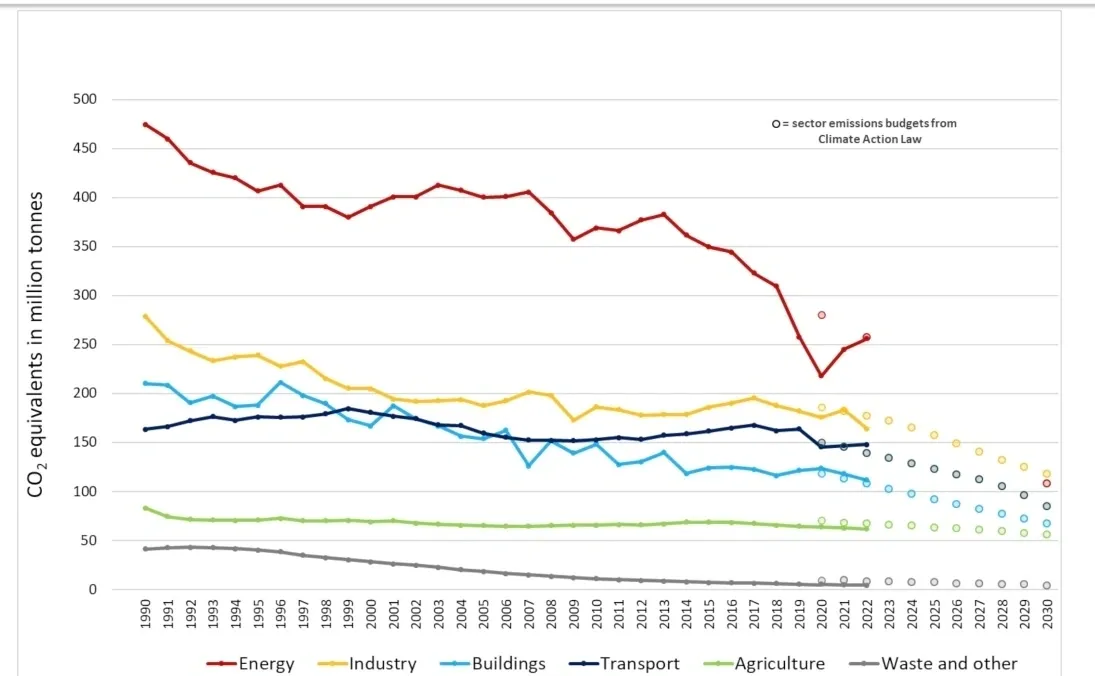
German greenhouse gas emissions witnessed a remarkable 10% decrease last year, reaching the lowest levels since approximately 1950.
According to think tank Agora Energiewende, emissions in 2023 amounted to 673 million tonnes of CO2 equivalents, marking a 10% decline from 2022 and a substantial 46% reduction from 1990 levels.
The reduction, though significant, is attributed to short-term effects such as economic downturns and lower electricity consumption, prompting concerns that emissions could rise again when the economic situation improves.
Economy and Climate Minister Robert Habeck celebrated the massive emission decrease, particularly noting the historic low in coal-fired power generation and the increased use of renewables in the past two years.
Germany aims to reduce emissions by at least 65% by 2030 and achieve greenhouse gas neutrality by 2045, aligning with EU goals for a climate-neutral continent by 2050.
Preliminary data reveals that Germany’s coal power production for public supply in 2023 hit its lowest point since around 1960, with renewables contributing to over half of the country’s power consumption.
Agora Energiewende attributes the slump in industry production to consistently high prices in the European gas market due to the shift from cheap Russian pipeline gas to increased LNG imports.
Despite progress, the transport and building sectors continue to miss climate targets, with CO2 emissions stagnating in 2023.
The buildings sector exceeded its annual emissions budget for the fourth consecutive year, prompting the government to agree on a new building energy law to phase out fossil fuel heating systems.
Agora Energiewende emphasizes the need for consistent implementation of climate laws to effectively reduce emissions in the building sector.
Transport, labeled the “problem child” of Germany’s energy transition, failed to meet 2022 climate targets, leading to a court ruling that the transport ministry must propose immediate measures.
The sector appears to have exceeded its annual emissions budget for the third consecutive year in 2023, prompting Economy Minister Habeck to acknowledge the need for more comprehensive measures.
Agora Energiewende calls for a coherent strategy to transform the transport sector, including adjustments to taxes, levies, and subsidies for cars, expanded local public transport, and modern road traffic legislation.
The think tank notes that the government’s target of having at least 15 million electric cars on the roads by 2030 remains distant, with the share of electric cars among new registrations in 2023 remaining at just under 20%.
The German transport and environmental association Verkehrsclub Deutschland (VCD) urges the government to introduce effective measures, proposing alignment of transport taxes and levies with climate efforts and immediate actions like a speed limit on motorways.
NGOs, including Greenpeace Germany and Environment Action Germany (DUH), caution against confusing economic crisis effects with successful climate policy, emphasizing the need for sustainable, long-term reduction strategies.







